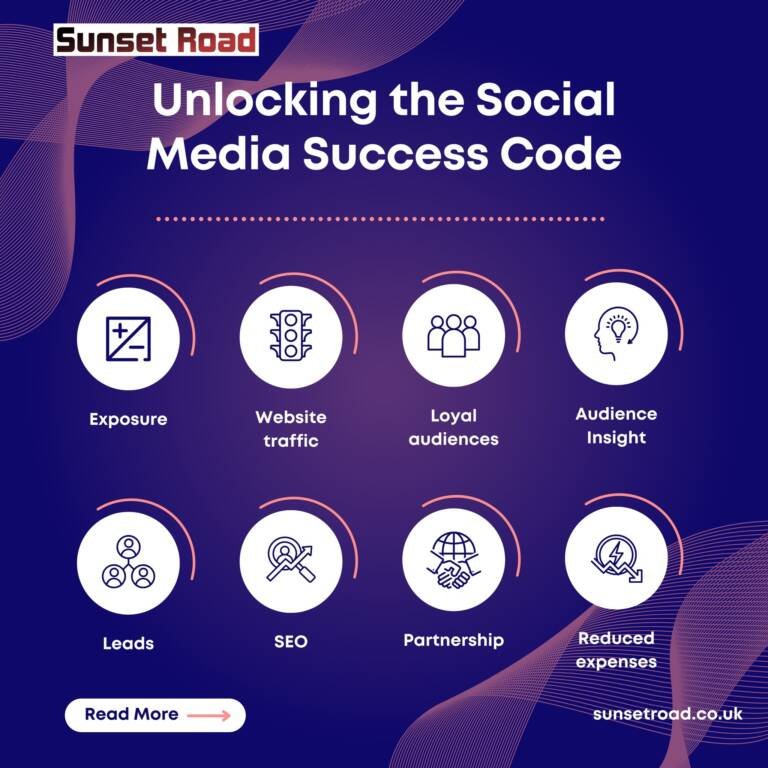Digital Marketing in the UK: Trends, Strategies, and Success Stories
In today’s digital age, marketing has moved far beyond traditional methods. Businesses are investing heavily in online platforms to engage with customers, build their brand, and increase sales. The UK is no exception, where digital marketing has become a cornerstone of business strategy. This comprehensive look into digital marketing in the UK will explore current trends, strategies businesses are employing, and case studies that highlight how digital marketing has transformed UK businesses.
The Rise of Digital Marketing in the UK
Over the past decade, digital marketing has seen exponential growth in the UK. As more consumers turned to online platforms for their daily needs, businesses have adapted by shifting their marketing strategies to digital mediums. According to the UK Office for National Statistics, internet access in the UK reached 96% of households in 2021. This surge in online engagement has compelled businesses to invest heavily in digital marketing techniques, from search engine optimization (SEO) to paid social media campaigns.Digital marketing in the UK covers a vast array of activities, including social media advertising, content marketing, SEO, email marketing, pay-per-click (PPC) advertising, and influencer marketing. The versatility and scalability of these tools allow businesses of all sizes to reach their target audience in more personalized and efficient ways than ever before.
Key Trends in Digital Marketing in the UK
- Growth of E-commerce: With the COVID-19 pandemic pushing more people to shop online, e-commerce businesses in the UK experienced an unprecedented boom. Digital marketing, particularly in the form of SEO and PPC, has been a critical tool for retailers to drive traffic to their online stores. Companies are optimizing their websites to improve the customer journey, making it easier for users to find products and services.
- Video Marketing: Video content continues to dominate digital marketing strategies in the UK. Whether it’s YouTube ads, TikTok campaigns, or Instagram stories, businesses are turning to video to engage with their audiences. UK consumers are highly receptive to video content that is entertaining, informative, and visually appealing.
- Personalization and Customer Experience: UK businesses are increasingly focusing on personalization to improve the customer experience. With the use of data analytics and AI-driven tools, companies can now deliver tailored content, ads, and services to individual customers based on their online behavior and preferences.
- Voice Search Optimization: Voice search is on the rise, thanks to the growing popularity of smart speakers and virtual assistants like Amazon Alexa, Google Home, and Apple’s Siri. In the UK, businesses are starting to optimize their websites and content to cater to voice search queries, which tend to be more conversational and long-tail.
- Sustainability and Ethical Marketing: With growing concerns about climate change and ethical practices, UK consumers are increasingly choosing to support businesses that prioritize sustainability and corporate responsibility. Digital marketing campaigns that highlight a company’s green initiatives or ethical sourcing can help build trust and loyalty among environmentally-conscious consumers.

Digital Marketing Strategies for UK Businesses
- Search Engine Optimization (SEO): SEO remains a critical component of digital marketing for UK businesses. Ranking higher on search engine results pages (SERPs) allows businesses to drive organic traffic to their websites without the need for paid ads. UK businesses are focusing on both on-page and off-page SEO strategies, including keyword optimization, backlink building, and creating high-quality, relevant content. Local SEO is also crucial, especially for businesses that rely on local customers. Optimizing for local searches like “restaurants near me” or “best plumbers in London” can help businesses appear in Google’s local pack.
- Social Media Marketing: Social media platforms like Facebook, Instagram, Twitter, and LinkedIn are widely used by UK consumers, making them essential for digital marketing campaigns. Businesses can use these platforms for both paid and organic marketing. Engaging with customers through regular posts, stories, and ads on social media helps build brand awareness, customer loyalty, and direct sales. In recent years, platforms like TikTok have also gained popularity in the UK, offering businesses a new way to reach younger audiences with creative and viral content.
- Email Marketing: Email marketing is one of the most effective and cost-efficient ways for UK businesses to engage with their customers. By creating personalized email campaigns, businesses can keep customers informed about new products, promotions, and other updates. Email newsletters are also an excellent way to nurture leads and guide them through the sales funnel. For UK businesses, compliance with the General Data Protection Regulation (GDPR) is crucial when conducting email marketing campaigns, ensuring that consumer data is handled ethically and transparently.
- Pay-Per-Click Advertising (PPC): PPC advertising allows businesses to bid for ad placement on search engines like Google, and on social media platforms. In the UK, PPC campaigns are a popular way to quickly gain visibility, drive traffic, and increase conversions. Google Ads remains the most commonly used platform for PPC campaigns, but businesses also use Facebook Ads, LinkedIn Ads, and Bing Ads to target specific demographics and interests.
- Content Marketing: Content marketing focuses on creating and distributing valuable, relevant, and consistent content to attract and retain a target audience. For UK businesses, content marketing can take the form of blog posts, videos, infographics, and whitepapers. The goal is to educate and engage customers, positioning the business as an authority in its industry. By providing valuable content, businesses can build trust with their audience, ultimately leading to higher conversion rates.
Case Studies: Digital Marketing Success Stories in the UK
- ASOS: A Fashion Giant’s Digital Success
ASOS, the UK-based online fashion retailer, is a prime example of how a business can dominate the digital marketing landscape. ASOS leverages multiple digital marketing strategies to build its brand and drive sales. The company focuses heavily on SEO and paid advertising to ensure that its products appear at the top of search results. ASOS also uses social media platforms like Instagram and TikTok to engage with its audience, particularly through influencer marketing and user-generated content.
ASOS has built a strong presence on YouTube, creating style guides, product showcases, and behind-the-scenes videos to connect with its customers. The brand’s email marketing campaigns are highly personalized, with tailored recommendations based on customer preferences and past purchases. By combining SEO, PPC, social media marketing, and email marketing, ASOS has become one of the leading fashion e-commerce platforms in the UK.
- Innocent Drinks: Ethical Marketing and Social Media Success
Innocent Drinks, a UK-based company known for its smoothies and juices, has built its brand around ethical marketing and sustainability. The company has successfully used digital marketing to convey its commitment to sourcing ethically and supporting charitable causes. Innocent Drinks has a strong social media presence, with a particular focus on engaging and entertaining content. Their Twitter account, for instance, is famous for its witty and humorous posts, which resonate with their audience and encourage shares and interaction.
Innocent Drinks also uses content marketing to share stories about their products, suppliers, and community initiatives. The brand’s website features blog posts, videos, and infographics that highlight their sustainability efforts and corporate social responsibility (CSR). This approach has helped build a loyal customer base that values the company’s ethical practices, driving both sales and brand loyalty.
- Greggs: Leveraging Humor and Social Media for Brand Engagement
Greggs, the popular UK bakery chain, has used digital marketing, particularly social media, to great effect. Known for its sense of humor, Greggs frequently creates viral content on platforms like Twitter and Instagram. One notable campaign was the launch of the Greggs vegan sausage roll, which went viral after a playful exchange with Piers Morgan on Twitter. This generated significant media coverage and social media buzz, leading to increased sales and visibility for the brand.
Greggs uses a mix of content marketing, SEO, and PPC advertising to drive traffic to its website and stores. The company’s website features interactive tools like a “Greggs Locator” to help customers find their nearest store. By combining humor, social media engagement, and a strong digital presence, Greggs has managed to remain relevant and beloved by its customers.
Conclusion
Digital marketing has become a fundamental part of business success in the UK. With the ever-evolving digital landscape, businesses must stay up-to-date with the latest trends and strategies to remain competitive. From SEO and social media marketing to personalized email campaigns and content marketing, UK businesses are using a range of digital tools to connect with their audiences and drive growth. The case studies of ASOS, Innocent Drinks, and Greggs illustrate how UK companies can leverage digital marketing to achieve tremendous success, whether by building a strong online presence, engaging with customers through social media, or promoting their ethical values. In the future, businesses in the UK will need to continue adapting to new technologies, consumer behaviors, and digital marketing trends to thrive in an increasingly competitive market.











